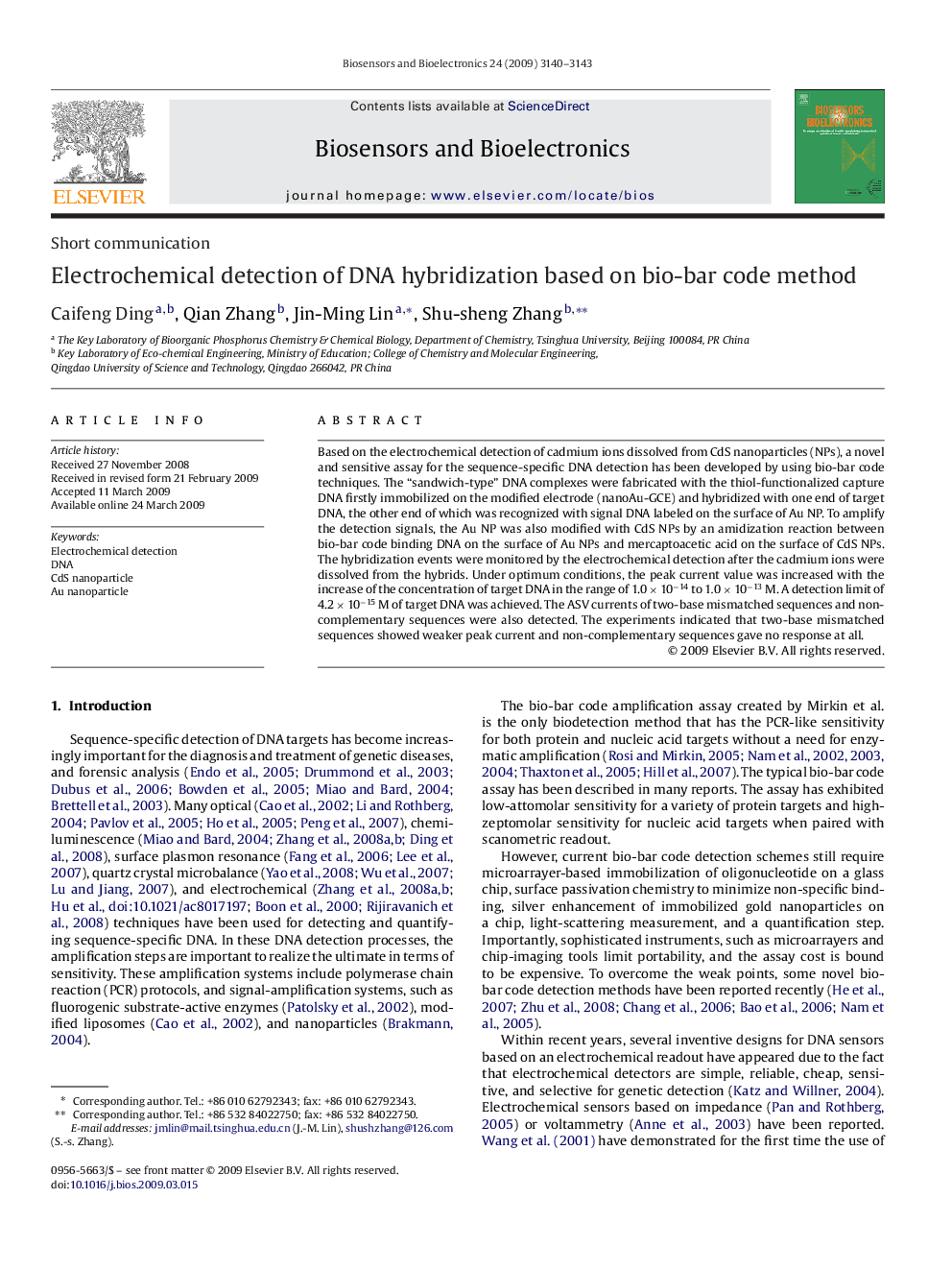| Article ID | Journal | Published Year | Pages | File Type |
|---|---|---|---|---|
| 868945 | Biosensors and Bioelectronics | 2009 | 4 Pages |
Based on the electrochemical detection of cadmium ions dissolved from CdS nanoparticles (NPs), a novel and sensitive assay for the sequence-specific DNA detection has been developed by using bio-bar code techniques. The “sandwich-type” DNA complexes were fabricated with the thiol-functionalized capture DNA firstly immobilized on the modified electrode (nanoAu-GCE) and hybridized with one end of target DNA, the other end of which was recognized with signal DNA labeled on the surface of Au NP. To amplify the detection signals, the Au NP was also modified with CdS NPs by an amidization reaction between bio-bar code binding DNA on the surface of Au NPs and mercaptoacetic acid on the surface of CdS NPs. The hybridization events were monitored by the electrochemical detection after the cadmium ions were dissolved from the hybrids. Under optimum conditions, the peak current value was increased with the increase of the concentration of target DNA in the range of 1.0 × 10−14 to 1.0 × 10−13 M. A detection limit of 4.2 × 10−15 M of target DNA was achieved. The ASV currents of two-base mismatched sequences and non-complementary sequences were also detected. The experiments indicated that two-base mismatched sequences showed weaker peak current and non-complementary sequences gave no response at all.
